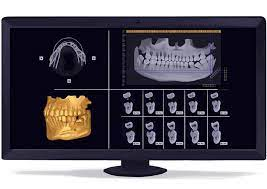How much does it cost to go to the dentist? This is a question many people ask themselves when faced with the prospect of going to the dentist, and in fact, it’s a question that many people never get an answer to because they are afraid to hear what their treatment might cost. But how can you know if dental treatment is expensive or affordable if you don’t even know what your treatment will be?
Dentists require an exhaustive amount of training
Dentists have to complete four years of undergraduate school and then attend an accredited dental school for another four years. It’s a five-year program in total, meaning many people are in their 20s when they graduate with their dentist degree. Once they’ve finished dental school, they must then complete two years of dental residency. During residency, dentists learn advanced procedures and hone their clinical skills. All that education certainly doesn’t come cheap!
Materials for all dental treatments are costly
When you visit a dentist, they are going to explain that they need to make sure all materials used in their office are of high quality. Even routine procedures require sterilized tools and equipment. Depending on what you’re having done and what type of materials your dentist uses, dental treatment can cost $100 per hour or more. When it comes to cosmetic dentistry like teeth whitening or dental implants, most patients pay out-of-pocket because most insurance companies don’t cover these procedures.
Dentists aren’t paid enough by insurance companies or the government
Dentists’ salaries are often a public concern, and many people wonder why dentists make so much money for what seems like a relatively easy job. Dentists don’t just deal with one or two patients per day; they may treat several mouths at once, meaning that their labor isn’t coming out to be much when each patient sees them for just a few minutes.
Some insurers don’t want to pay as much as others, so prices vary
Some dental insurance plans don’t have contracts with certain clinics or offices, and some doctors don’t take all insurers. That means that even if you do have dental insurance, it might not pay for your entire procedure. In that case, it’s best to ask your dentist how much you will be expected to pay up front. Remember, he or she works for you and wants to give you a good price. Insist on it! If they won’t work with you, find another clinic. If there are no other clinics in your area, you may need to go without dental care until another one opens up. You can also shop around at different dentists until you find one who gives you a good price.
Specialized dentistry procedures can be very complex
Specialized dentistry procedures are usually more complex than traditional dental services. As a result, they tend to be both more labor-intensive and expensive for dentists to provide. For example, orthodontic treatments can take several years to complete and often require multiple appointments per week. This can add up quickly if you’re paying out of pocket! If you have insurance that covers orthodontics, however, then you may not notice such high costs as much—you may even qualify for a discount if your orthodontist participates in your plan’s network.

Comments
Post a Comment